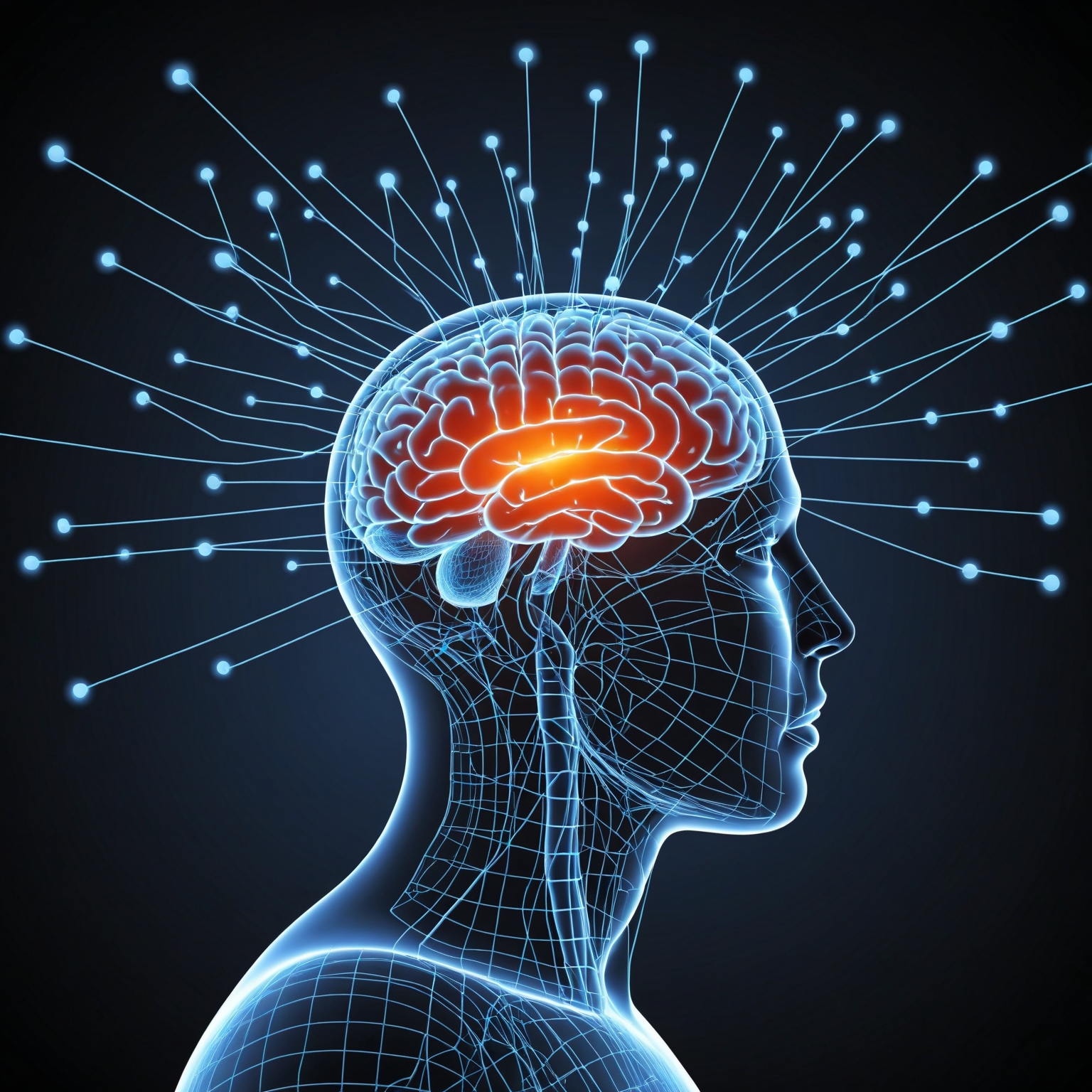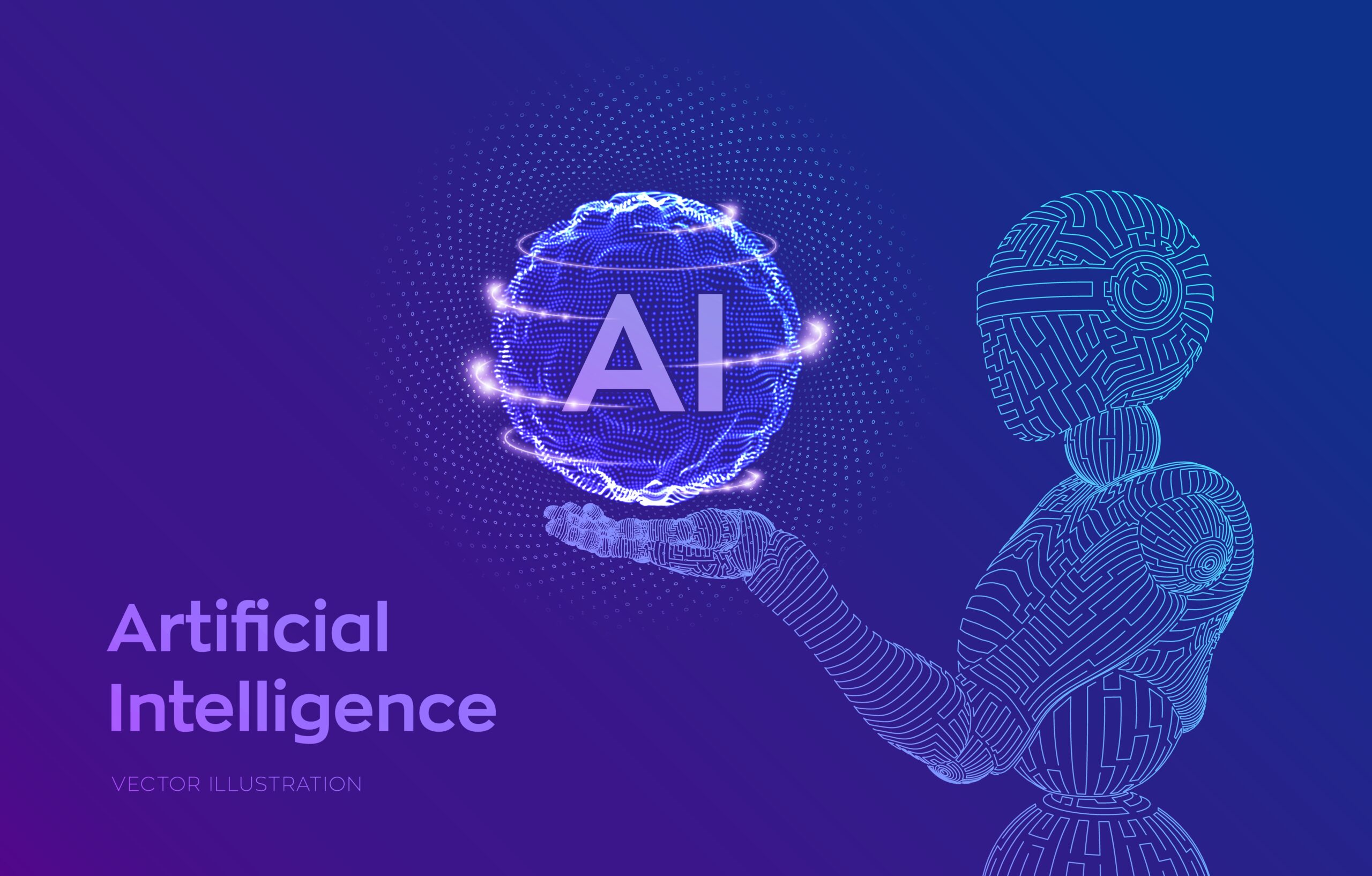Neuropsychiatric Disorders: A Multifaceted Approach to Prevention, Control, Treatment, and Cure Using Advanced Technologies
Neuropsychiatric disorders encompass a range of mental health issues that affect both the mind and the nervous system. Common mental health problems like depression, anxiety, bipolar disorder, and schizophrenia fall under this category. These conditions are often influenced by genetic factors, making them complex to diagnose and treat. With advancements in technology, particularly in genetic engineering, AI/ML, quantum computing, and blockchain, we now have new tools to tackle these disorders at a fundamental level. This blog explores how these technologies can be leveraged, the scientific perspectives on their use, current global efforts, and the workforce required for this endeavor.
1. Genetic Engineering
Genetic Engineering and Mental Health:
Genetic engineering involves the direct manipulation of an organism’s genes using biotechnology. In the context of mental health, this technology can be used to:
- Identify Genetic Markers: Researchers can identify specific genetic markers associated with neuropsychiatric disorders. This helps in early diagnosis and personalized treatment plans.
- Gene Therapy: Introducing or altering genes to prevent or treat mental health conditions. For example, CRISPR-Cas9 technology can be used to edit genes associated with schizophrenia or bipolar disorder.
Scientific Perspectives:
- Neuroscience and Evolution: Understanding how certain genes have evolved can provide insights into why they might predispose individuals to neuropsychiatric disorders. Evolutionary biologists and neuroscientists work together to trace the origins of these genes.
- Medical Research: Ongoing studies focus on how genetic mutations and variations contribute to mental health issues, aiming to develop targeted therapies.
Current Efforts:
- Genentech: A biotech company working on gene therapies for various diseases, including those affecting the brain.
- Neurocrine Biosciences: Developing treatments for neurological and neuropsychiatric disorders using genetic insights.
2. Artificial Intelligence and Machine Learning (AI/ML)
AI/ML in Mental Health:
AI and ML technologies can analyze vast amounts of data to identify patterns and predict outcomes. Their applications in mental health include:
- Predictive Analytics: AI algorithms can predict the onset of neuropsychiatric disorders based on genetic, environmental, and behavioral data.
- Personalized Treatment: Machine learning models can recommend personalized treatment plans by analyzing patient data and comparing it with existing medical records.
- Virtual Therapists: AI-powered chatbots and virtual therapists can provide initial counseling and support to individuals, making mental health care more accessible.
Scientific Perspectives:
- Data-Driven Insights: AI and ML provide data-driven insights that can reveal new correlations between genetics, environment, and mental health.
- Interdisciplinary Research: Collaboration between computer scientists, psychologists, and medical professionals is crucial to develop effective AI/ML models.
Current Efforts:
- Woebot Health: An AI-powered mental health chatbot that provides cognitive behavioral therapy (CBT) techniques.
- IBM Watson Health: Using AI to analyze medical data and provide insights for personalized mental health treatments.
3. Quantum Computing and Quantum Physics
Quantum Computing in Mental Health:
Quantum computing, which leverages the principles of quantum mechanics, can process complex data sets much faster than classical computers. Potential applications in mental health include:
- Simulation of Brain Functions: Quantum computers can simulate complex neural networks, providing deeper insights into brain functions and disorders.
- Optimization of Treatment Plans: Quantum algorithms can optimize treatment plans by considering a vast array of variables and potential outcomes.
Scientific Perspectives:
- Quantum Neuroscience: Researchers are exploring the quantum processes that might underlie brain functions, potentially leading to new approaches in treating mental health disorders.
- Interdisciplinary Studies: Combining knowledge from quantum physics, neuroscience, and psychology to develop novel treatments.
Current Efforts:
- D-Wave Systems: Working on quantum computing applications in various fields, including health care.
- Google AI Quantum: Exploring the potential of quantum computing in solving complex problems in medicine and other domains.
4. Blockchain Technologies
Blockchain in Mental Health:
Blockchain technology can provide secure and transparent ways to manage patient data, ensuring privacy and integrity. Its applications include:
- Secure Patient Records: Blockchain can store patient records securely, ensuring that data is tamper-proof and accessible only to authorized individuals.
- Decentralized Clinical Trials: Blockchain can facilitate decentralized clinical trials, improving transparency and trust in the results.
Scientific Perspectives:
- Data Security and Privacy: Ensuring the privacy and security of sensitive mental health data is paramount, and blockchain provides a robust solution.
- Collaborative Research: Blockchain can enable secure and transparent sharing of research data among scientists worldwide.
Current Efforts:
- BurstIQ: A blockchain-based platform for managing health data securely.
- Patientory: Using blockchain to store and manage patient health information.
5. Leveraging These Technologies
Holistic Approach:
Combining these technologies can provide a holistic approach to preventing, controlling, treating, and curing neuropsychiatric disorders. For example:
- Genetic Engineering and AI/ML: Identifying genetic markers and using AI to develop personalized treatment plans.
- Quantum Computing and Blockchain: Using quantum computing for complex simulations and blockchain for secure data management.
Workforce Requirements:
To effectively leverage these technologies, a multidisciplinary workforce is needed, including:
- Geneticists and Biotechnologists: Experts in gene editing and therapy.
- AI/ML Specialists: Professionals skilled in developing and implementing AI algorithms.
- Quantum Physicists and Engineers: Researchers and engineers working on quantum computing applications.
- Blockchain Developers: Experts in blockchain technology and its applications in healthcare.
- Healthcare Professionals: Psychiatrists, psychologists, and neuroscientists to apply these technologies in clinical settings.
Comprehensive Strategies for Addressing Neuropsychiatric Disorders Using Advanced Technologies
Neuropsychiatric disorders, encompassing a spectrum of mental health issues influenced by genetic, environmental, and neurobiological factors, present significant challenges in diagnosis, treatment, and management. Advances in technology—specifically in genetic engineering, AI/ML, quantum computing, and blockchain—offer new avenues to address these disorders comprehensively. This blog delves into the expanded strategies and applications of these technologies, considering diverse scientific perspectives, current initiatives, and the skilled workforce required.
Genetic Engineering
Advanced Techniques and Applications:
- Epigenetic Modulation: Beyond direct gene editing, epigenetic modulation can alter gene expression without changing the DNA sequence. Techniques like CRISPR-dCas9 can be used to activate or repress specific genes linked to mental health conditions.
- Gene-Environment Interactions: Studying how genes interact with environmental factors (e.g., stress, diet, exposure to toxins) can help in understanding the complex etiology of neuropsychiatric disorders and developing interventions that mitigate adverse environmental impacts.
Scientific Perspectives:
- Neurogenetics: The study of how genetic variations influence brain structure and function can reveal underlying mechanisms of mental health disorders, leading to targeted therapies.
- Pharmacogenomics: Understanding how an individual’s genetic makeup affects their response to medications can guide personalized pharmacological treatments, reducing side effects and increasing efficacy.
Current Efforts:
- 23andMe: Utilizing genetic data to identify genetic variants associated with mental health conditions, providing insights for personalized health recommendations.
- Editas Medicine: Developing CRISPR-based therapies for genetic disorders, including those affecting the nervous system.
Artificial Intelligence and Machine Learning (AI/ML)
Innovative Applications and Tools:
- Natural Language Processing (NLP): AI-driven NLP tools can analyze patient speech and text to detect early signs of mental health issues, facilitating timely intervention.
- Behavioral Monitoring: AI systems can monitor and analyze behavioral patterns through wearable devices and mobile apps, providing continuous mental health assessment and support.
Scientific Perspectives:
- Computational Psychiatry: This emerging field uses computational models to understand mental health disorders, simulate brain functions, and predict treatment outcomes.
- Integrative Approaches: Combining AI/ML with neuroimaging and genetic data can create comprehensive models of mental health disorders, enhancing diagnostic accuracy and treatment personalization.
Current Efforts:
- Mindstrong Health: Using digital phenotyping and AI to monitor cognitive and emotional health through smartphone interactions.
- Ginger: An AI-driven platform providing on-demand mental health support through chat-based interactions and personalized content.
Quantum Computing and Quantum Physics
Breakthrough Technologies and Methods:
- Quantum Machine Learning: Leveraging quantum computing to enhance machine learning algorithms, enabling the analysis of complex datasets related to mental health with unprecedented speed and accuracy.
- Quantum Encryption: Ensuring the secure transmission and storage of sensitive mental health data through quantum encryption techniques, providing a higher level of security than classical methods.
Scientific Perspectives:
- Quantum Cognition: Exploring how principles of quantum mechanics might explain cognitive processes and mental health disorders, potentially leading to novel therapeutic approaches.
- Quantum Neurobiology: Investigating quantum effects in neural processes to uncover new insights into brain function and pathology.
Current Efforts:
- IBM Quantum Experience: Providing access to quantum computing resources for researchers exploring applications in health care, including mental health.
- QxBranch: Developing quantum computing software for predictive analytics and simulation, with potential applications in neuroscience.
Blockchain Technologies
Innovative Solutions and Protocols:
- Smart Contracts: Utilizing blockchain-based smart contracts to automate and enforce agreements in mental health care, such as consent for treatment and data sharing.
- Tokenized Health Data: Creating tokenized systems for health data, enabling patients to control access to their data and monetize their contributions to research.
Scientific Perspectives:
- Decentralized Health Ecosystems: Building decentralized ecosystems for mental health data, facilitating collaboration among researchers, clinicians, and patients while maintaining data privacy and security.
- Patient-Centered Care: Empowering patients through blockchain technology to manage their health data and participate in their care decisions actively.
Current Efforts:
- MedRec: A blockchain-based system for managing electronic medical records, ensuring data integrity and patient control.
- Nebula Genomics: Using blockchain to provide secure and transparent genomic data sharing, enabling research into the genetic basis of mental health disorders.
Leveraging These Technologies: Expanded Approaches
Integrated Platforms:
- Digital Health Ecosystems: Developing integrated digital health platforms that combine genetic data, AI-driven diagnostics, quantum computing simulations, and blockchain-secured records for a holistic approach to mental health care.
- Collaborative Networks: Establishing global collaborative networks that leverage these technologies to share data, insights, and resources, accelerating research and treatment development.
Workforce Requirements:
To effectively harness these advanced technologies, a diverse and skilled workforce is essential:
- Bioinformaticians: Experts in analyzing and interpreting complex biological data.
- Ethicists and Legal Experts: Professionals who ensure ethical standards and legal compliance in genetic engineering and data management.
- Interdisciplinary Researchers: Teams comprising geneticists, computer scientists, quantum physicists, neuroscientists, and clinicians collaborating to develop innovative solutions.
- Technology Integration Specialists: Professionals skilled in integrating AI, quantum computing, and blockchain technologies into healthcare systems.
Conclusion
The integration of genetic engineering, AI/ML, quantum computing, and blockchain technologies holds great promise in addressing neuropsychiatric disorders. By harnessing these advanced technologies, we can develop more effective prevention, control, treatment, and cure strategies. This approach requires collaboration across various scientific disciplines and a skilled workforce dedicated to advancing mental health care. As we continue to explore these possibilities, the future of mental health treatment looks increasingly promising and innovative.








liverpool university dental hospital of
Bath open days highlight engineering and sustainability programs.